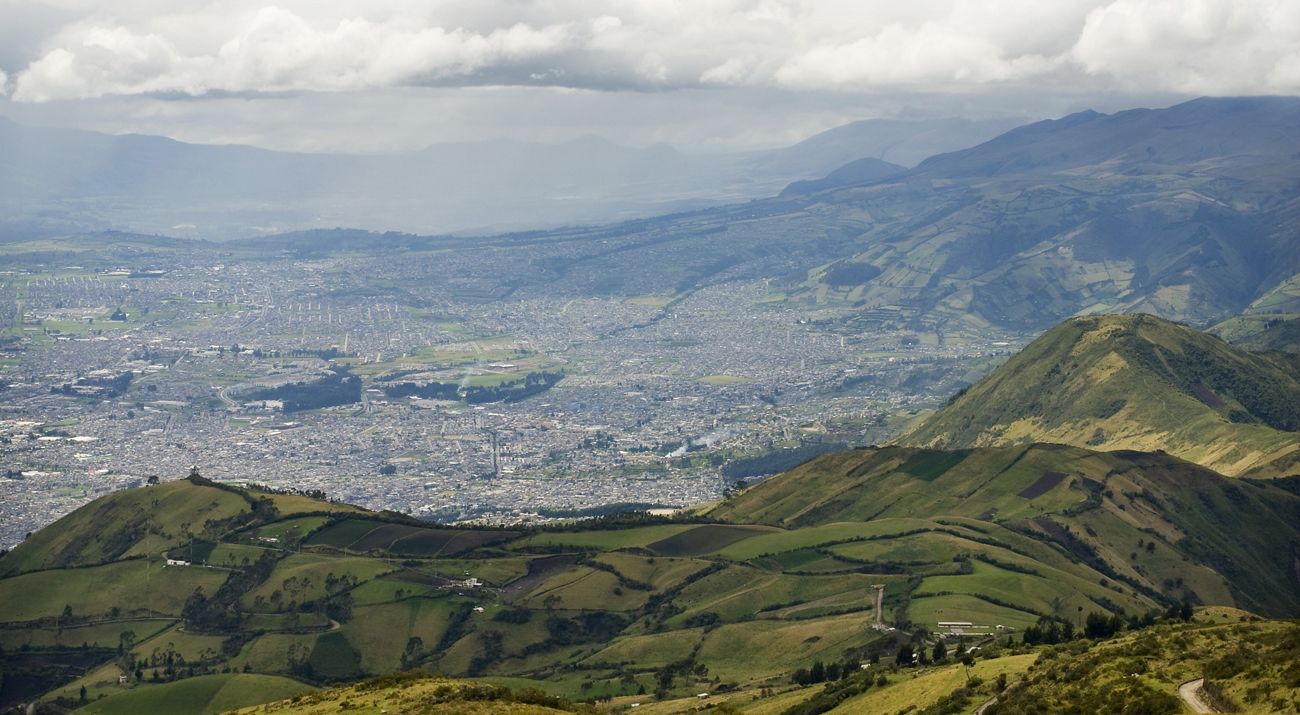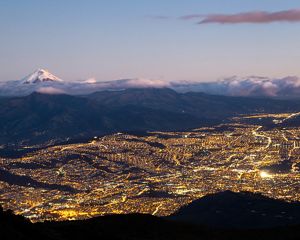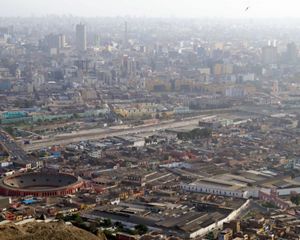Ecuador Water Funds
Two Water Funds in Ecuador help protect and manage water resources for the benefit of people and nature
Water is essential for life on the planet. It is also crucial for social and economic development. But our water security is threatened by increasing demands for water and the great variation in its quality and availability due to climate change and the degradation of natural areas.
Global water consumption doubles every 20 years, and by 2025 at least two-thirds of the global population could live in hydrologically stressed areas. In Ecuador, The Nature Conservancy (TNC) and partners are helping cities protect the source of their water by creating Water Funds, innovative financial mechanisms whose goal is to secure long-term funding for the conservation of crucial water sources. The Funds are based on partnerships between urban and rural communities, land owners, water utilities, cities, companies and other stakeholders interested in protecting the water sources on which they depend.
Ecosystems influence the flow of water and its quality: wetlands store runoff, recharge aquifers and filter organic waste; while forests provide shade for bodies of water and reduce runoff and erosion. However, most cities around the world have failed to consider the costs of watershed conservation and the management of water rates in their planning.
TNC plays a leading role in Water Funds in the Ecuadorian cities of Quito and Guayaquil. In the former, water utility EPMAPS and TNC founded the Quito Water Fund, FONAG, in 2000. As one of the oldest Water Funds, FONAG has inspired the establishment of dozens of other Water Funds throughout Latin America. FONAG currently has $12 million in its 80-year delimited trust and an annual budget of approximately $2 million. Its primary objectives are to maintain an adequate supply of quality water (particularly during the dry season) by promoting the protection and sustainable management of Quito’s source watersheds. FONAG focuses much of its efforts in maintaining or improving the integrity and function of the Páramo (the high elevation Andean grasslands) given its importance to Quito’s water supply.
Our Work in Pictures



The Guayaquil Water Fund was started in April 2015 to ensure funding for the conservation of the Daule River Watershed, responsible for providing water to the city’s three million residents. Guyaquil is Ecuador’s largest and most populous city and although it is known as a business center, it also has important industries and an expanding tourism economy. The Daule River Watershed is part of the Guyas River, one of the most important and abundant in South America’s Pacific Coast. Fund-supported actions include critical area protection and restoration of riparian forests, watershed-focused land use planning, education, environmental awareness, and more.
TNC believes that investing in nature is vital; protecting and restoring ecosystems that are essential to water production help nature provide critical services and those practices save the cities money and help them guarantee an adequate supply of high-quality water for their inhabitants.
Our ultimate goal is to fundamentally change how stakeholders manage our most precious resource -water- for the benefit of people and nature.



